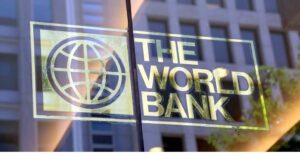
MAN releases Q4 2024 MCCI report, index rises to 50.7 points
By Omolola Dede Adeyanju
The Manufacturers Association of Nigeria (MAN) has released its Manufacturers CEO Confidence Index (MCCI) Report for the fourth quarter of 2024, highlighting a modest increase in the Aggregate Index Score (AIS) from the third quarter.
The report, signed by MAN’s Director General, Segun Ajayi-Kadir, and made available to Nigerian NewsDirect, presents manufacturers’ perceptions of the macroeconomic and operational environment in Q4 2024, compared to Q3.
According to the findings, the Aggregate MCCI recorded a slight increase of 0.5 points, rising from 50.2 points in Q3 2024 to 50.7 points in Q4. A breakdown of the diffusion indices revealed that current business conditions (48.3), employment conditions (47.9), and production levels (47.5) showed improvement, driven by a moderate rise in consumer demand during the festive period.
However, these indices remained below the 50-point threshold, indicating persistent macroeconomic challenges. Manufacturing operations continued to struggle under high costs of raw materials, energy, and logistics, compounded by unfavourable exchange rates, interest rates, and inflation.
Despite the slight improvement in Q4 2024, projections for Q1 2025 indicate a slowdown in business activity, with all three key indicators declining while remaining above the 50-point threshold. The projected business condition index fell from 56 points to 53.2, employment expectations dropped from 53.8 to 53, and anticipated production levels declined from 54.3 to 54 points.
This suggests that while manufacturers foresee a slower start to the year, they remain cautiously optimistic about improved exchange rate stability, a halt in interest rate hikes, lower energy costs, and the enactment of favourable Tax Reform Bills in early 2025.
The sectoral breakdown of the report showed that confidence indices in three sectoral groups declined, while seven groups reported improved confidence levels. However, two of the seven remained below the 50-point threshold. The zonal analysis indicated that five industrial zones recorded confidence indices below 50 points, while nine zones performed above the threshold. Notably, four of the nine industrial zones experienced contractions despite staying above the 50-point mark.
As Nigeria’s manufacturing sector navigates a challenging macroeconomic landscape, the report underscores the need for urgent policy interventions. Key challenges facing manufacturers include high electricity tariffs, multiple taxation, restricted credit access, high interest rates, exchange rate volatility, and insecurity.
With 2025 poised as a pivotal year for the sector, the government is urged to prioritise macroeconomic reforms backed by concrete, time-bound actions. The administration’s targets of reducing inflation to 15% and stabilising the naira at N1,500/$ must be pursued through pragmatic policies rather than rhetoric.
The Association stressed the importance of ramping up domestic industrial production and increasing patronage of locally manufactured goods to ease forex pressures. It called on government ministries, departments, and agencies (MDAs) to lead by example in prioritising Made-in-Nigeria products.
The report concluded that economic stability in 2025 will depend on a more stable exchange rate, reliable energy supply, relaxed monetary policies, full disbursement of intervention funds, strengthened security efforts, and the effective implementation of both the Tax Reform Bills and the National Single Window Project.




